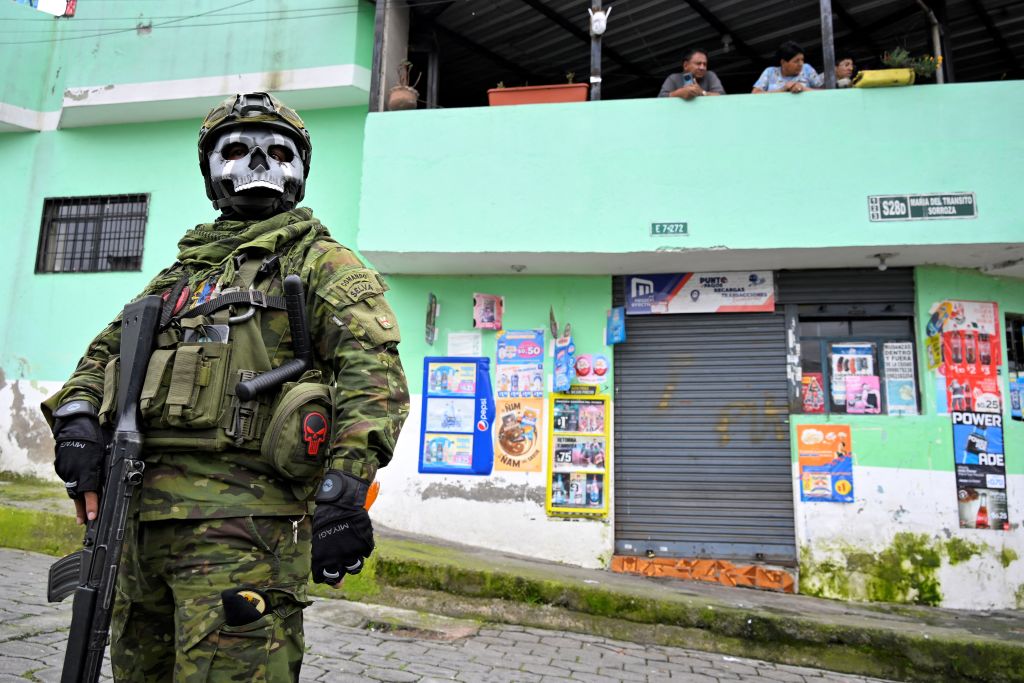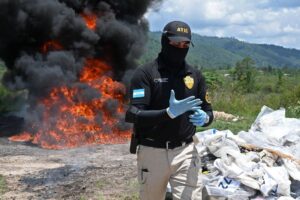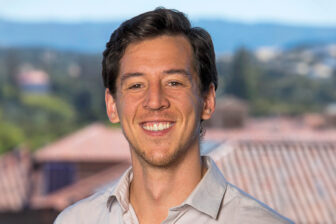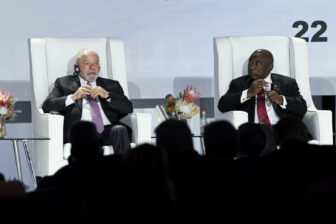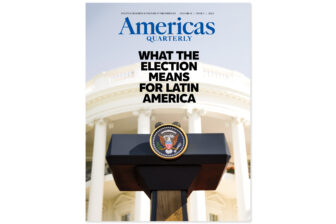Nearly everyone in today’s Latin America agrees the war on drugs, as pursued over the last 50 years, has been an abysmal failure. As a result, several key governments including Mexico seem to be quietly backing off the fight, as I wrote in last week’s column.
So what might the future look like instead?
Most debate in the region today seems stuck between two opposite, but similarly unrealistic alternatives: Legalization or Nayib Bukele.
Indeed, the most-talked about solution on the ideological left, and part of the libertarian right, is the legalization or decriminalization of some or all drugs. This has already happened to some degree over the last decade, with the recreational use of marijuana now legal in Uruguay, and decriminalized under certain conditions in Mexico. Chile, Colombia, Argentina and Peru are among the countries that since 2015 have decided to permit the medical use of cannabis.
But let’s be real: The war on drugs today is mostly about cocaine and fentanyl. That’s what’s driving recent bloodshed in Ecuador, Chile and elsewhere. And when it comes to softening the rules around so-called “hard drugs,” the politics remain incredibly toxic almost everywhere you look in Latin America.
Early in his term, Colombia’s President Gustavo Petro proposed flexibilizing some rules around both marijuana and coca, the raw material used to make cocaine, and used the grand stage of the United Nations to suggest other countries consider similar steps. Given Colombia is the source of 60% of the world’s coca, and Petro’s role as the first leftist leader in his country’s modern history, some wondered if this was a game-changing moment.
Barely a year later, though, most of the agenda seems dead. Colombia’s Senate has repeatedly shelved a bill that would legalize recreational use of marijuana. Petro says that, while maybe cocaine will be legal “one day,” his country will continue to conduct seizures of the drug. A big reason: almost 80% of Colombians disapprove of legalizing or decriminalizing drugs, according to polls – a percentage that has barely budged over the last decade. Petro’s own approval has now fallen into the 20s, making him something of a lame duck on a variety of issues.
“Petro has a clear diagnosis on why the war on drugs is bad, why it’s hurt people, but when it comes to what to do, there’s no plan…. no consensus, even on marijuana,” Sergio Guzmán, a Colombian political analyst, told me.
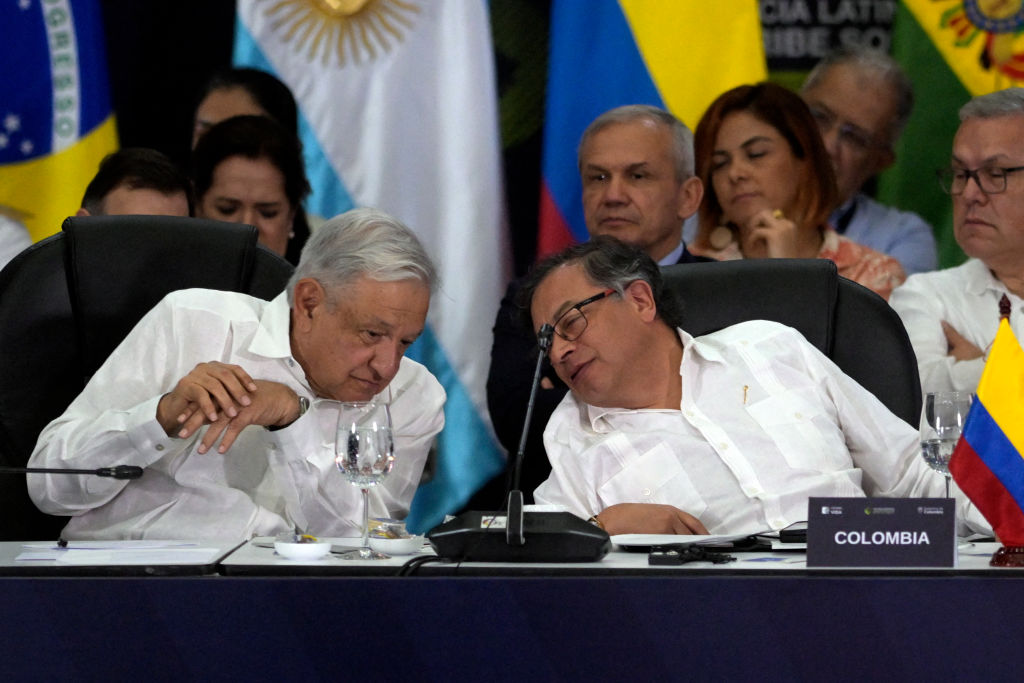
It’s not just Petro, though. Chile’s President Gabriel Boric told interlocutors early in his term he could not sacrifice political capital to pursue the decriminalization of marijuana given other priorities such as a new Constitution (which eventually failed). In Brazil, President Luiz Inácio Lula da Silva is believed to be personally sympathetic; but also aware of polls showing 72% of Brazilians oppose legalizing marijuana, up from 66% four years ago; the issue is a non-starter in Brazil’s conservative Congress. (The polling on medicinal cannabis use in Brazil is more favorable.) Argentina’s new leader, Javier Milei, is a committed libertarian who supported legalizing drugs during his campaign, but is currently seen as unlikely to push that agenda while in office, given Argentines’ fears over drug-related crime.
I asked Diego García-Devis, who has followed the issue for nearly a decade at the Open Society Foundations, what it might take to change the status quo. His answer: “A change in the United States,” specifically a decision by the federal government to follow the actions of several states and decriminalize marijuana, which he said might give political and legal cover to some Latin American leaders to follow suit. But regarding cocaine, he said: “Almost no one dares to even speak about it.”
There’s similar deadlock on the other side of the political spectrum, where a common refrain heard throughout the region is “We need another Bukele,” referring to the El Salvadoran president whose crackdown on gangs has contributed to a more than 80% decline in homicides.
But for all the talk, it’s not clear that public opinion or the judicial system in any other Latin American country would tolerate putting 2% of the adult population in jail, often without due process, as Bukele has. Presidential candidates who have recently positioned themselves as their country’s answer to Bukele, such as Jan Topic in Ecuador or Zury Rios in Guatemala, have lost to more moderate figures. Rafael López Aliaga, the right-wing mayor of Lima, recently said he no longer supports a “Bukele plan,” noting “Peru has a completely different reality.” A true offensive against Mexican, Colombian or Brazilian cartels, who control smuggling routes in most countries, would likely be much more difficult than cornering El Salvador’s MS-13, which was seen as a relatively minor player in global drug trafficking even before Bukele took office.
So where does that leave us? Several governments are quietly seeking a truce or equilibrium with drug gangs, in which they try to largely leave them alone in the hope of not stirring violence, as I wrote last week. Others are advocating a multipronged approach, in which governments address drug use through more spending on public health, while also taking back control of prisons from gangs, and defending certain red lines from a law enforcement perspective such as the influence of cartels in politics. “This is not just a security problem, but a state capacity problem,” the Chilean-Peruvian security expert Lucía Dammert recently told the Americas Quarterly Podcast. That might not make a compelling campaign slogan, or speech at the UN. But it’s a problem that continues to defy simple solutions.
(With research by Emilie Sweigart)


